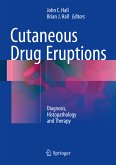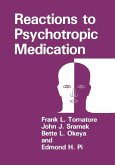Adverse Cutaneous Drug Reactions To Cardiovascular Drugs reviews the reported types of reactions to cardiovascular drugs. Each is discussed according to drug class and the type of dermatologic reaction with special emphasize on cross-reactions and the role of patch testing in diagnosis. A total of 116 images are included featuring clinical appearance of common adverse cutaneous drug reactions and diagnostic procedures such as patch and photopatch testing with the suspected drugs. Complementary tables may allow to scan the most common cutaneous reactions and the related cardiovascular drugs along with the possible cross reactions at first glance. It will thus be of considerable importance to all dermatologists and medical professionals who manage the skin, while being an important reference resource for cardiologists in terms of identifying potential adverse reactions to the drugs they prescribe.
Dieser Download kann aus rechtlichen Gründen nur mit Rechnungsadresse in A, B, BG, CY, CZ, D, DK, EW, E, FIN, F, GR, HR, H, IRL, I, LT, L, LR, M, NL, PL, P, R, S, SLO, SK ausgeliefert werden.









